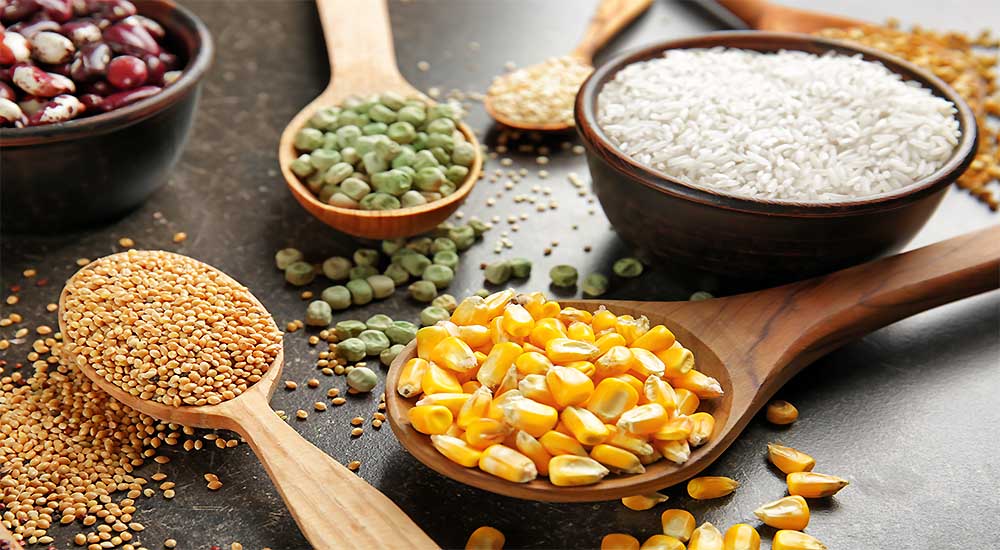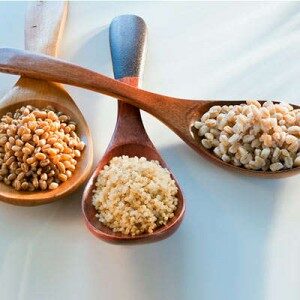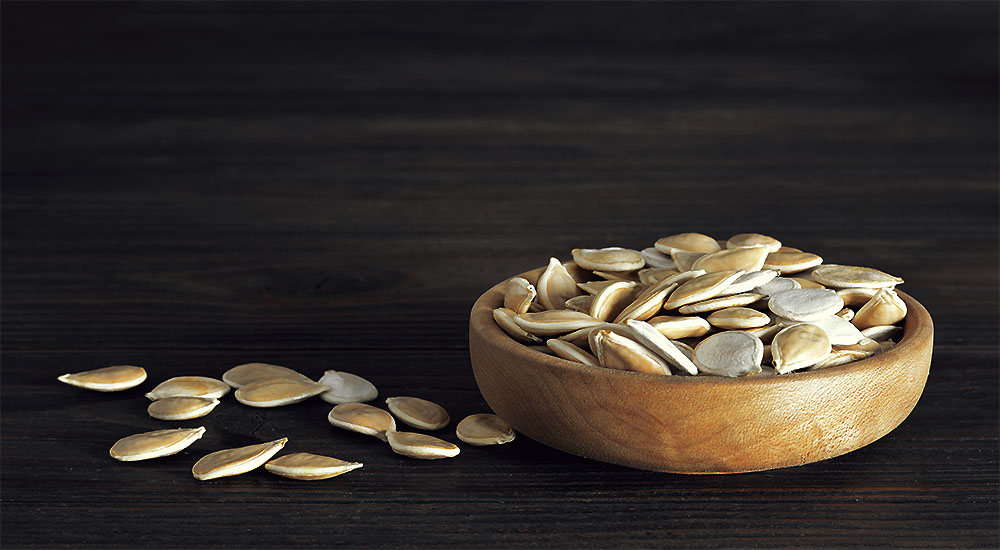Should Celiacs Eat Grains?

Should You Eat Grains on a Gluten-free Diet?

The grain is not a grain is not a grain. In other words, a rice cake or a white rice cracker or chip, cannot be compared to whole grain organic brown rice, cooked fresh. The way the body processes each is vastly different. The former is very refined and the latter is not.
A whole, the organic grain is a beautiful complex carbohydrate that the body burns cleanly for good energy. The refined version spikes blood sugar, creating an insulin response, inflammation, weight gain, and, over time, degenerative disease. So as you can see they are vastly different!
Corn and Soy are Mostly GMO and not Recommended
Looking at some specific grains, I like my patients to avoid corn as much as possible due to over 90% of it being GMO, ditto for soy (not a grain, but it's presence in many carbohydrate-laden products) – both show a high rate of negative reactions in patients. If your body seems to tolerate a little organic corn, that’s fine, but I wouldn’t make either corn or soy a major staple in your diet.
Cross-Reactive Foods Must be Evaluated
Another facet of grains to be aware of is how they may fall into the category of cross-reactive foods as it relates to gluten intolerance. These particular foods, chiefly dairy products and grains, have a similar protein structure to gluten and can create stress for certain patients whose immune system is unable to differentiate between these foods and gluten.
Yes, the foods are, themselves, gluten-free. But in susceptible individuals, the protein structure is similar enough to gluten to confuse the immune system into thinking it actually IS gluten. We utilize a lab test to determine if this is occurring and fortunately it doesn’t tend to be a permanent condition in most people. But in those being affected, these foods must be eliminated for a period of time in order to heal the immune system and strengthen the body as a whole.
Oats, Yes or No?
Oats is a grain that we can now find in a contaminated-free of gluten version, and that has been a joyful experience for many who have missed eating it.
While the gluten-free version works for many, there is still a good percentage of patients who react to oats in their own right, despite the grain is free of any gluten contamination.
It is estimated that 10-15% or more celiacs fall into this category and we see this in our gluten-sensitive patients as well. Therefore, any sensitivity to oats needed to be determined.
Some Grains are Just Fine…
Where that leaves us is that there is no ‘pat’ answer to the question of grains being acceptable or not. But I do disagree with a viewpoint that eschews all grains for everyone. I find that not only unnecessary, but many gluten-free grains in their organic, whole form are very nutritious. These include rice, tef, quinoa, millet, amaranth, buckwheat, tapioca, arrowroot – the last few are not actual ‘grains’ but they are treated as such in many grain-rich gluten-free foods.
Here at Root Cause Medical Clinic, we work with the individual to determine what dietary approach works best for them. We often find that even those patients who initially don’t tolerate many grains well, once the secondary effects of gluten have been properly addressed – namely hidden infections, enzyme deficiencies, probiotic imbalances, and hormonal issues (this is a particularly important one for women), they are then able to consume complex carbohydrates and enjoy them with no negative effects. I hope this helps. Please let me know if you have any questions. We are here for the purpose of improving the health of as many people as possible.
Do you need help with your health?
We have the diagnostic and testing tools, the clinical experience, and a different medical approach to discovering the root cause of why you have the symptoms that are bothering you. As long as you are ready to make some dietary and lifestyle changes, we can help you. We will "hold your hand" through the changes, step by step, to make each step an easy one. We are located in Clearwater, FL, at 1000 S Ft Harrison, at the corner of Ft. Harrison Ave. and Magnolia St. There is plenty of parking space directly accessible from Ft Harrison. If it is not convenient for you to come to Root Cause Medical Clinic, we offer telehealth/telemedicine consultations to residents of certain states. Call us for details.
Contact us for a Consultation – Call 727-335-0400

Dr. Vikki Petersen DC. CCN
Founder of Root Cause Medical Clinic
Certified Functional Medicine Practitioner
Dr Vikki Petersen is a public speaker, author of two books, several eBooks and creates cutting edge content for her YouTube community. Dr Vikki is committed to bringing Root Cause Medicine and its unique approach to restoring health naturally to the world.
Ask a Doctor
Have a health concern you'd like to speak with a doctor about? Or just want clarity on a subject? Ask Us!


